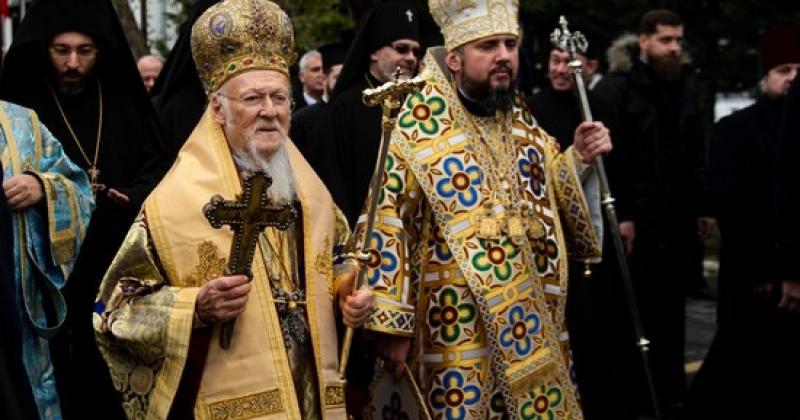The creation of a new Ukrainian church under the auspices of the Constantinople Patriarchate has deeply divided the churches of the Orthodox world. Both canonical and geopolitical, the dispute has centered around the issue of the primacy of the Patriarch of Constantinople.
On the eve of Orthodox Christmas on Jan. 5, during a solemn ceremony at the patriarchal church of St. George in Istanbul, the Primate of Constantinople, Patriarch Bartholomew, officially confirmed the creation of the new autocephalous or independent Church of the Ukraine.
"A historic event," according to Ukrainian President Petro Porochenko, who transformed the creation of the new church into a highly political issue of national sovereignty much to the chagrin of the Russian Orthodox Church, which until now was the only canonical church on Ukrainian territory.
However, in order to be accepted as such, the completely new Kiev Patriarchate must now be fully recognized by the other primates of the Orthodox world.
And although Bartholomew wrote to the heads of Orthodox churches on Dec. 24, 2018 expressing his hope that they would recognize the new body and its primate, Metropolitan Epifaniy, the news certainly did not please the whole of the Orthodox world.
"With deep pain, perplexity and indignation, I read your letter in which you informed us of the recent acts of the Constantinople Church," responded Patriarch Kirill of Moscow in a Dec. 31 reply to Bartholomew, warning him that he would cease to be the "First in the Orthodox world" if he officially recognized the Church of the Ukraine.
No decision without consensus
The churches that have historically remained in solidarity with the positions of the Moscow Patriarchate have lined up with its views.
Closer than ever to Moscow since the beginning of the Russian intervention in Syria, the Patriarch of Antioch called on Bartholomew to "not take any decision without a consensus of the Orthodox churches."
The Serbian, Polish, Montenegrin and Czechoslovak churches reacted similarly with their heads unanimously condemning the involvement of the Ukrainian government in ecclesiastical affairs.
They also condemned Metropolitan Philaret, patriarch of honor of the new Ukrainian church, who was excommunicated by Moscow in 1997 for having created a schismatic church in Kiev five years earlier.
In October 2018, this excommunication was unilaterally lifted and the Kiev Patriarchate recognized by Bartholomew on the basis of his claimed symbolic primacy in the Orthodox world.
Upset, the Moscow Patriarchate, which regards the Ukraine as coming under its jurisdiction, responded by cutting all ties with Constantinople.
In addition to the decision to make Philaret the head of the "schismatic" Ukrainian Church, this amounted to an affirmation by the Constantinople Patriarchate of its right to exercise a primacy that was no longer merely honorific but actually effective over other churches.
It thus attracted criticism from well beyond those who traditionally support Moscow.
"It is highly reductive to speak of Moscow-Constantinople bipolarization," observed Jivko Panev, lecturer in canon law at the Saint Serge Institute of Theology in Paris.
"The central issue is not geopolitical but canonical," he explained. "With the exception of Constantinople, all the churches believe that the attribution of autocephaly must be achieved by a pan-Orthodox consensus, which would allow each church the freedom to express itself."
"In this sense, it is Constantinople against all," he said.
Primus sin paribus
According to Jivko Panev, the management of the Ukrainian crisis by Bartholomew is the implementation of the view according to which the Constantinople would not be "primus inter pares" (first among equals) but "primus sin paribus" (first without equals) in the Orthodox world.
He would thus have the right to intervene in part in the internal affairs of other churches.
"This is a crucial ecclesiological issue that is deeply intertwined with political and geopolitical issues. Is Orthodoxy merely a federation of independent churches in communion or is it the case that there is a real primacy within the Orthodox world?" asked historian and theologian Jean-François Colosimo.
"That is the debate and it has lasted since the 19th century," he said.
Divided, the Church of Georgia has postponed its decision. Others, such as Patriarch Daniel of Romania, have called for dialogue and unity.
At present, none of the fourteen canonical Orthodox churches has officially recognized the new autocephalous Ukrainian Church.
